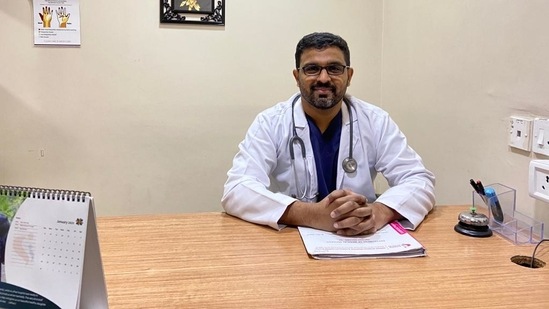Latest IVF techniques and their impact
Over the years, new techniques have been added to this process, which have overcome its limitations and boosted the chances of bringing home a healthy baby for couples for whom this would not have been possible otherwise.

When In Vitro Fertilization (IVF) was introduced back in the 1980s, the medical procedure used to be a hush-hush affair with success rates hovering at just about 12 per cent. Four decades and more than 8 million IVF babies later, this ‘miracle of science’ has come a long way from there.
Circa 2021. IVF has become a common procedure to treat infertility in both men and women and we look at a 40 per cent success rate today. As the science of fertility continues to advance, each new intervention adds a fresh ray of hope for those who may be suffering from fertility problems that were earlier considered to be without cure.
In a nutshell, the process of IVF involves taking the process of reproduction to a petri dish, where eggs extracted from the woman and sperms from the male partner are fused outside the body to form a healthy embryo. This is planted back into the woman’s uterus where the pregnancy continues.
Over the years, new techniques have been added to this process, which have overcome its limitations and boosted the chances of bringing home a healthy baby for couples for whom this would not have been possible otherwise.
Intracytoplasmic Sperm Injection (ICSI)
This process is commonly used to treat male infertility. A healthy male has an average sperm count of 39 million. In cases where this count is found to be less than 5 million, ICSI is required to help overcome fertilization failures.
In the traditional method, after extraction of eggs and sperm, the embryologist would just place them together in a petri-dish till the best sperm found its way into the egg. In ICSI, the sperm is injected into the egg using a specialized needle under the vision of a high-powered microscope.
Frozen Embryos
Science now allows eggs from a woman, sperms from a man, or healthy embryos to be frozen and used at a later date. This means that couples delaying the decision to have children for career reasons, or health conditions like cancer, wherein treatments like chemotherapy and radiotherapy can destroy all the eggs or sperms, can still have biological children of their own. We had recently done this for a Leukemia patient whose eggs were frozen before cancer treatment began. She delivered a healthy baby through IVF.
Frozen embryos are also used by couples trying to have a second baby through IVF. During the procedure, women are given injections to stimulate egg production so that we can extract more than one embryo in one cycle. While one healthy embryo can be implanted, the others can be stored for subsequent pregnancies at a later date. The woman can take 2-3 years to have another child. When she returns, she can bypass the initial steps of the process which are painful and laborious. The process of freezing and thawing itself has evolved and is done through vitrification now.
Laser Assisted Hatching
Embryos, once formed, are coated with a jelly-like protective covering called the zona pellucida. In some cases, this thick wall prevents even healthy embryos from implanting in the uterine wall of the woman. This caused a problem during IVF when even viable embryos were not translating into pregnancies.
The process of assisted hatching involves the use of laser to break this wall by creating a tiny hole. It is performed in the lab right before the embryo transfer. This allows the embryo to “hatch” and implant more easily to the lining of the uterus. We have observed much better pregnancy rates upon using this technique in IVF procedures.
Preimplantation Genetic Testing (PGT)
In cases of recurrent miscarriages or where the age of the woman is advanced, a PGT of the embryo is carried out before implantation to ensure that the child to be born does not suffer from any genetic diseases in the future.
The process has two main advantages. It has been seen that genetic conditions can transfer from one generation to another through babies. In cases with a family history of genetic disorders, including down’s syndrome, a genetic testing of the couple is done to identify the genetic condition. All the embryos created via IVF can be tested for this condition and we can select the one which is healthy for implantation. Secondly, it allows transfer of just one embryo, which is the fittest, thereby decreasing the chances of having twins which can later cause complicated pregnancies.
Microscopic Testicular Sperm Extraction
Microscopic Testicular Sperm Extraction is used to treat very severe male infertility caused by the absence of sperms in the semen of the male partner. This could be due to a variety of factors, ranging from hormonal issues to low/no sperm production.
In such cases, this procedure is performed in conjunction with IVF where doctors extract the sperm directly from special pockets in the testes where they are stored using a specialized injection. At specialized IVF centres, the doctors use special microscopes during the extraction to identify 1-2 healthy sperms and specifically extract only those, to increase the changes of immediate fertilization with the female partner’s eggs.
To know more about taking a step towards parenthood, log in here and check out our website.
Dr Abhishek Radhakrishnan is Director, Nila Women and Fertility Clinic and Head of Department, Reproductive Medicine, Kinder Women’s Hospital at Cherthala, Kerala.



